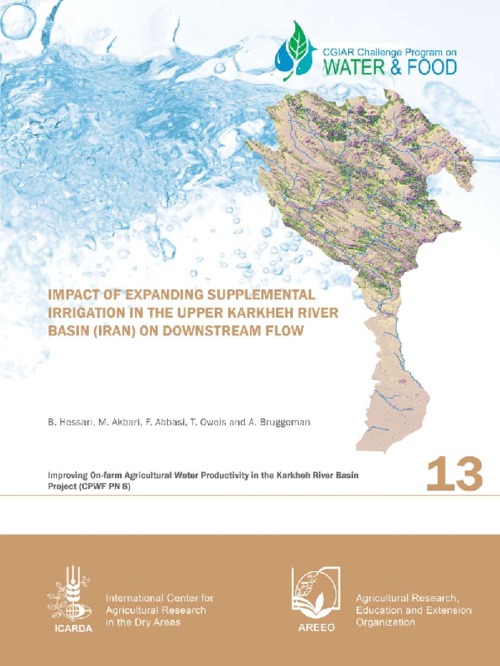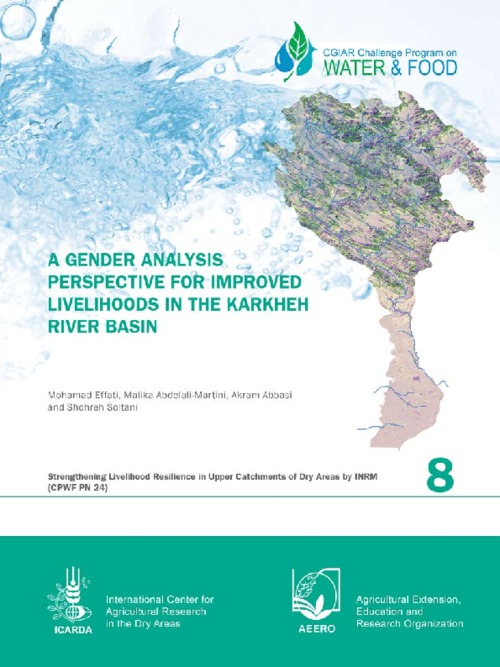Location
The International Center for Agricultural Research in the Dry Areas (ICARDA) was established in 1977. It is one of 15 such centers supported by the CGIAR. ICARDA’s founding mandate to promote agricultural development in the dry areas of developing countries remains highly relevant today.
ICARDA works with a tight focus on the problem-solving needs of resource-poor farmers, achieving this through the in-field delivery of its research outputs. Although global food production has increased by 20 per cent in the past decade, food insecurity and poverty remain widespread, while the natural resource base continues to decline.
International research centers such as ICARDA, which have helped drive previous improvements, continue to deliver new technologies to support sustainable growth in agriculture, and crucially, to work with a wide range of partners to accelerate the dissemination of these technologies.
ICARDA’s biggest strength is its staff – 600 highly skilled men and women from 32 countries. Our research and training activities cover crop improvement, water and land management, integrated crop-livestock-rangeland management, and climate change adaptation.
Other interventions include:
- Water harvesting - supplemental irrigation and water-saving irrigation techniques
- Conservation agriculture methods to reduce production costs and improve sustainability
- Diversification of production systems to high-value crops – horticulture, herbal and medicinal plants
- Integrated crop/rangeland/livestock production systems including non-traditional sources of livestock feed
- Empowerment of rural women – support and training for value-added products.
The ICARDA genebank holds over 135,000 accessions from over 110 countries: traditional varieties, improved germplasm, and a unique set of wild crop relatives. These include wheat, barley, oats and other cereals; food legumes such as faba bean, chickpea, lentil and field pea; forage crops, rangeland plants, and wild relatives of each of these species.
ICARDA’s research portfolio is part of a long-term strategic plan covering 2007 to 2016, focused on improving productivity, incomes and livelihoods among resource-poor households.
The strategy combines continuity with change – addressing current problems while expanding the focus to emerging challenges such as climate change and desertification.
We work closely with national agricultural research systems and government ministries. Over the years the Center has built a network of strong partnerships with national, regional and international institutions, universities, non-governmental organizations and ministries in the developing world and in industrialized countries with advanced research institutes.
THE ‘DRY AREAS’
Research and training activities cover the non-tropical dry areas globally, using West Asia, North Africa, Central Asia and the Caucasus as research platforms to develop, test, and scale-out new innovations and policy options.
Dry areas cover 41 per cent of the world’s land area and are home to one-third of the global population. About 16 per cent of this population lives in chronic poverty, particularly in marginal rainfed areas. The dry areas are challenged by rapid population growth, frequent droughts, high climatic variability, land degradation and desertification, and widespread poverty. The complex of relationships between these challenges has created a "Poverty Trap."
Members:
Resources
Displaying 341 - 345 of 431Impact of Expanding Supplemental Irrigation in the Upper Karkheh River Basin (Iran) on Downstream Flow
The Karkheh River Basin (KRB) of Iran has a semi-arid to arid climate and suffers from low rainfed agricultural productivity. Supplemental irrigation (SI) is recommended in the upper KRB to increase crops yields and water productivity (WP). However, development activities upstream will certainly affect the water quality and quantity flowing to the Karkheh Dam downstream.
A gender Analysis Perspective for Improved Livelihoods in the Karkheh River Basin
This study on gender and livelihood aims to find new ways of improving the incomes of rural households, based on the role of women in agricultural production and the division of labor in socioeconomic activities between men and women. It targets eight villages in two regions: Merek (Kermanshah Province) and Honam (Lorestan Province), and was carried out through conducting a social survey (quantitative research) and a participatory rural appraisal - PRA- (qualitative research). The results from qualitative and quantitative research were integrated.
How much salt-affected land is there? .كم تبلغ مساحة الاراضي المتأثرة بالملوحة
A crucial part of the Initiative is the determination of the extent and nature of the land degradation
due to salt damage in Central and Southern Iraq. A range of techniques, including the very latest
Geographic Information Systems are being deployed to achieve this.
من أهم عناصر البحث التي يعني بها هذا المشروع هو تحديد مدى وطبيعة تدهور الأرض الزراعية المتدهورة بفعل الملوحة في وسط وجنوب العراق حيث تستخدم مجموعة من التقنيات لتحقيق ذلك. نذكر منها على سبيل المثال نظم المعلومات الجغرافية.
Improving food security and nutrition in Africa
Few regions present bigger development challenges than the African drylands – home to nearly 300 million people, and the vast majority of Africa’s poor. Food security and rural welfare in these areas are limited by a range of factors, biophysical, socio-economic and policy-related. And many of the biggest challenges – poverty, drought, land degradation, food insecurity – will be exacerbated by climate change.
Review of Available Knowledge on Land Degradation in Pakistan
This publication reviews the historical and current literature on land degradation in Pakistan.
It is intended as a useful guide for Government officials, donor agencies, NGO’s, farmers, rural groups and others in determining a route forward to combat land degradation in-country and in delivering practical assistance on the ground.







